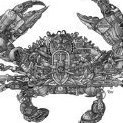Bottled Water. Is It Safe?
-
Recently Browsing 0 members
- No registered users viewing this page.
-
Topics
-
-
Popular Contributors
-
-
Latest posts...
-
2
Crime Scam Complaints Surge Again as Call Centres Change Tactics
Yeah, gotta climb up the tree a bit further, -
44
How to catch a gecko?
I came up with another trick. I use very small garbage bags which I replace often and I keep the garbage bags in the fridge. I don't leave garbage bags out anymore. So there is no food out ever. -
148
Almost can't stand all that Trump winning on his B Day.
Your response was just AI rubbish and had no actual facts. For instance it didn't mention any of the companies that actually provide crowds for a fee. Here's one example: Crowds on Demand is an American publicity firm that provides clients with hired actors to pose as fans, paparazzi, security guards, unpaid protesters and professional paid protesters.[1][2][3] The company operates in Los Angeles, San Francisco, Las Vegas,[4] New York City,[1] Washington, D.C.,[5] Iowa, and New Hampshire.[6] The firm was founded in October 2012 by Adam Swart.[4] -
47
Crime Drunk Foreigner’s Wild Rampage Shocks Chiang Khan Tourists
He's certainly not one of the million value tourists. -
157
Will the No Kings protests be peaceful or another excuse to …
That's a micro issue -- this is more macro esp. as regards those hating 3 CIT judges referenced above: -- Still, Mr. Trump’s tirade has strained an already uneasy relationship with traditional legal conservatives. -- Many share the president’s goals of strengthening border security, curbing the administrative state and ending “diversity, equity and inclusion” programs, said John Yoo, a conservative law professor. But, he added, they dislike some of Mr. Trump’s methods, whether that is prolifically invoking emergency powers or insulting judges who rule against his administration. -
50
Tourism Thailand Boosts Tourism with Strategic Focus on Quality Markets
So all those low-spending Chinese and Indians who have been encouraged to visit Thailand by the TAT and others don't really exist ? Thailand gave up attracting quality tourists years ago.
-
-
Popular in The Pub



.thumb.jpg.3ee24d9400fb02605ea21bc13b1bf901.jpg)

.thumb.jpeg.d2d19a66404642fd9ff62d6262fd153e.jpeg)






Recommended Posts
Create an account or sign in to comment
You need to be a member in order to leave a comment
Create an account
Sign up for a new account in our community. It's easy!
Register a new accountSign in
Already have an account? Sign in here.
Sign In Now